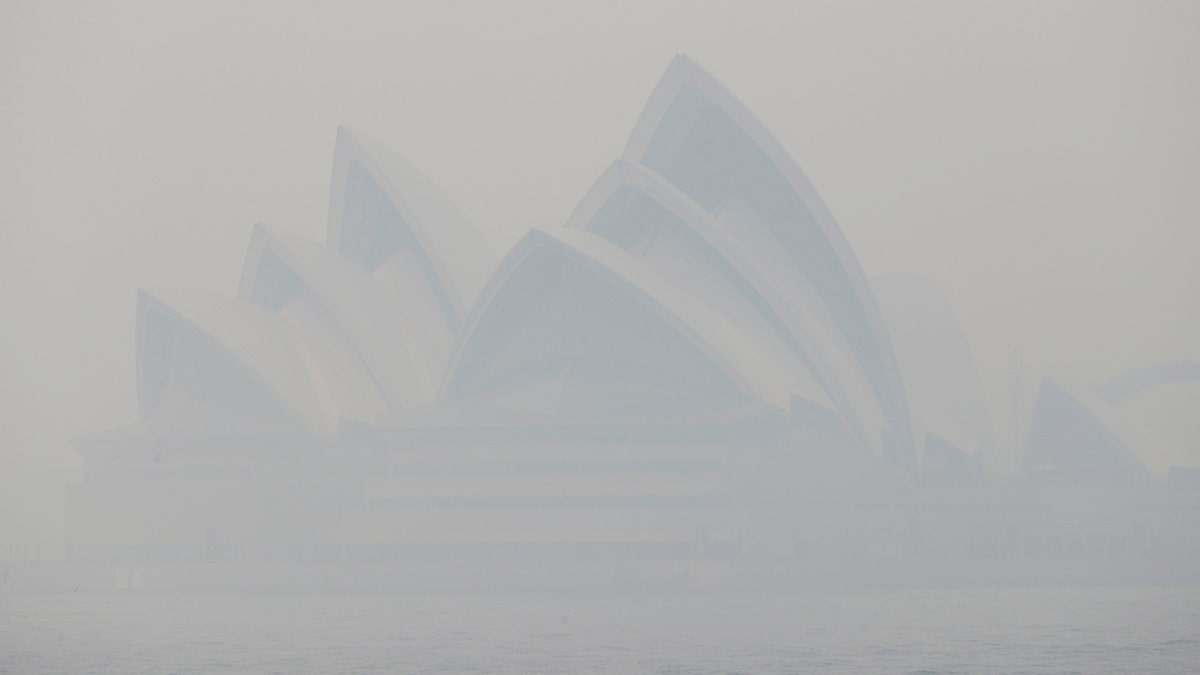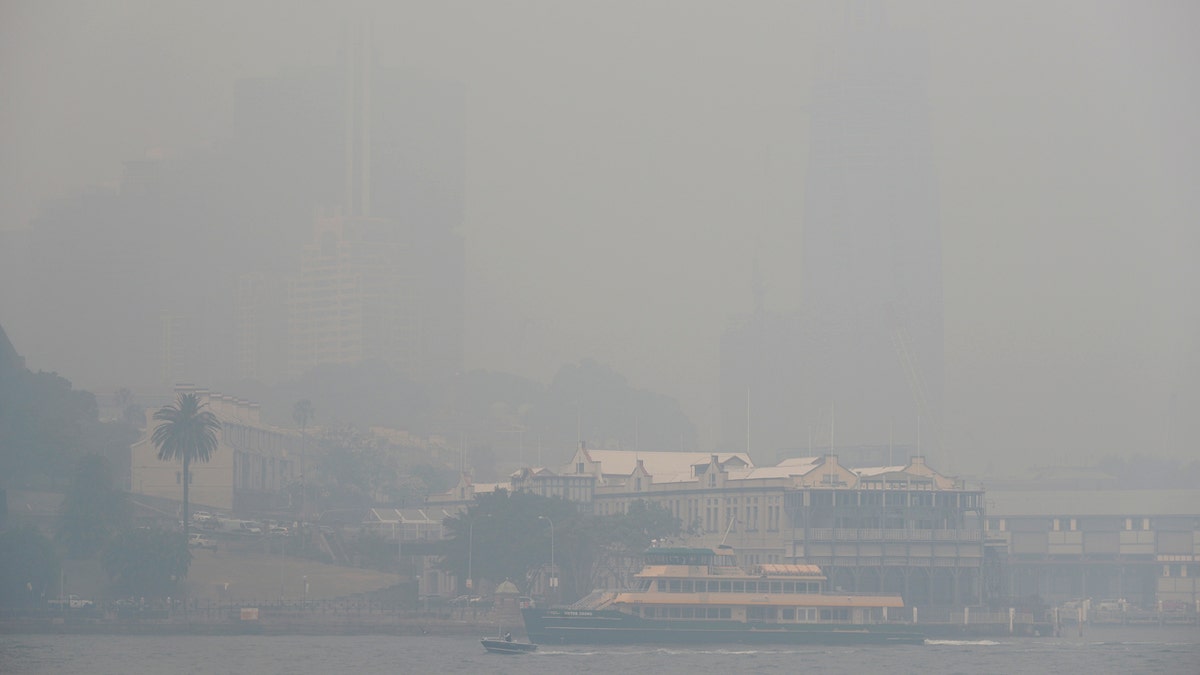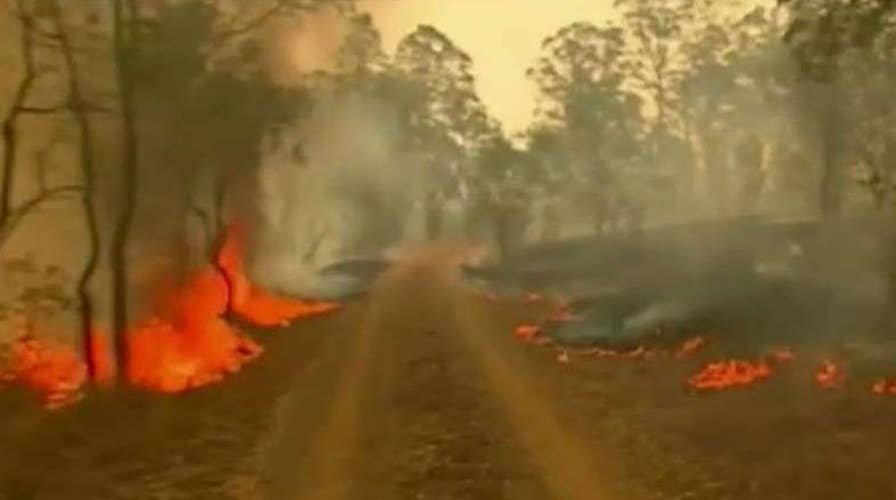Prosecutors in Australia accuse 19-year-old volunteer firefighter of starting at least seven wildfires
Six people have died and over 650 homes have been lost as fires ravaged the east coast of Australia; Benjamin Hall reports.
A thick haze from raging wildfires in Australia engulfed Sydney on Tuesday, creating dangerous air conditions and smoke so thick it was enough to trigger fire alarms in buildings across the city.
The winds on Tuesday from the north pushed smoke into the city, causing a haze that was so thick in some places it was 11 times worse than the air quality level considered “hazardous."
Thomas Costa, assistant secretary of Unions New South Wales, said that due to the dire air quality, workers should not be forced to work on outdoor job sites as long as the haze sticks around.
"Toxicity is very, very high," Costa told reporters.
SMOKE HAZE PROVIDES ADDED HAZARD AT AUSTRALIAN OPEN
Australia's fire season normally peaks during the summer in the Southern Hemisphere, but started early this year after an unusually dry and warm winter. Last month, authorities reported more than 50 wildfires burning mainly in northern New South Wales.

Thick smoke from wildfires shroud the Opera House in Sydney, Australia, Tuesday, Dec. 10, 2019. (AP Photo/Rick Rycroft)
As Sydney was engulfed with smoke on Tuesday, city officials canceled ferries and some offices in the downtown area were evacuated.
Local health officials advised people to stay indoors as much as possible and those with heart and lung problems were told to avoid all outdoor activity.

A ferry sails on the harbor as thick smoke settles in Sydney, Australia, Tuesday, Dec. 10, 2019. (AP Photo/Rick Rycroft)
"The smoke here in Sydney is extremely bad today, it is some of the worst air quality we've seen," Richard Broome of New South Wales Health told reporters. “We are just urging people once again to take these (conditions) seriously."
As the smoke settled into the metropolitan area of five million people, ambulances have been answering dozens of respiratory-related calls a day, according to the head of NSW Ambulance, Brent Armitage.
Sydney Trains also warned that fire alarms at train stations might be set off by the thick smoke drifting into the city from fires ringing Sydney.
AUSTRALIAN FIREFIGHTER ACCUSED OF ARSON AMID BUSHFIRE CRISIS, POLICE SAY

Thick smoke from wildfires shroud the Harbour Bridge in Sydney, Australia, Tuesday, Dec. 10, 2019. (AP Photo/Rick Rycroft)
Winds are forecast to shift, which may help air quality in greater Sydney but also fan the ongoing wildfires even further.
CLICK HERE FOR THE FOX NEWS APP
The early fire season has reignited the debate on whether Australia has taken enough action on climate change.
"These are the health consequences of a changing climate that health professionals have been warning us about," said public health expert professor Hilary Bambrick and Climate Council member in a statement to Australia's Nine News. "Climate change is supercharging bushfires and that is what we are seeing now with massive, unprecedented fires producing unbreathable air."
The Associated Press contributed to this report.








































